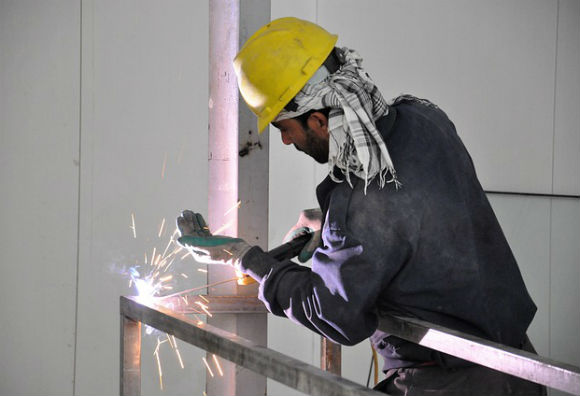Culture & Heritage
In the UK, the culture and heritage sector employs over 108,8000 people and at the last estimate was estimated to have an annual turnover of £15.1billion (Arts Council England, July 2015).
It incorporates museums and galleries, science Centres, the art market (eg auction houses, art and antiques dealers and appraisers), heritage organisations (eg National Trust, English Heritage, Oxford Preservation Trust, archaeological services) and theatre/performance organisations.
The cultural sector is supported by national and local government bodies, professional associations and a wide range of specialist service providers and freelancers.
Academic & curatorial jobs
Curators acquire, research, display and explain/write about objects in their care, and are viewed as the academic experts for a collection. They usually have an academic background in a relevant field, and many advertisements for curators require postgraduate study.
There are often Assistant Curators or Researchers in support roles at larger organisations. In auction houses a similar role is the Specialist. They progress to this role, usually through an internship, then a first role known as an ‘administrator’, then ‘senior administrator’; all these roles support the current specialist, while building deeper knowledge.
Exhibitions Officers or Project Officers have a varied role planning, managing and presenting exhibitions and projects, working alongside the curator. They are not usually academic specialists. Although historically many have entered this work through volunteering, increasing competition for roles has made relevant professional qualifications (such as the Masters in Museums Studies), plus substantial work experience, highly desirable.
Information & collections jobs
Collections Managers are responsible for the management of objects under an institution’s care, including their cataloguing, conservation, safety, acquisition and removal, storage and digital recording. In some larger institutions a collections manager might be supported by a ‘collections assistant’ role.
A similar role, known as a Registrar, is also responsible for the objects, particularly their transportation to other museums/galleries or auctions. This may entail packing, arranging insurance and even travelling with the objects to ensure safe passage and suitable display.
Photographers or Digital Managers would only typically be on staff in large institutions (other smaller bodies would hire this skill in when needed). They’re used to document exhibitions and collections and control and shape online content. All these roles are supported by Information Managers, Librarians and Archivists who work to record and facilitate use of materials by the institution’s clientele.
Production & conservation jobs
In theatre, there is a vast array of backstage and production roles; being involved in university drama productions is a great insight to such work. In heritage, Archaeologists, Archaeological Scientists and Finds Specialists are hired by some larger institutions to analyse items and contribute to reports and research about them (and sometimes work at a specific ‘dig’). Smaller organisations might not have this function on staff, but will hire in this skill from companies (such as Oxford Archaeologists).
Conservators/Restorers seek to prevent the deterioration of objects and may sometimes be self-employed. Conservators tend to train and specialise in one class of object, e.g. paintings, and work closely with curators and designers. Many will have an interest in art, combined with a knowledge of chemistry, ICT or heritage techniques.
Education & outreach jobs
Education/ Outreach Officers link arts organisations with the public. Their work includes the preparation and delivery of programmes, events and resources for schools and other visitors. Many will have a background in education or community work and education roles often specify a preference for applicants with qualified teacher status (QTS), or a relevant academic specialism.
Culture & heritage apprenticeships
There is plenty on offer in terms of culture and heritage apprenticeships. The Victoria & Albert Museum, for example, has a successful and well established programme, working with other institutions such as: the National Portrait Gallery, Historic Royal Palaces, RIBA, Wellcome Trust, and the Transport Museum.
School leavers could do a community arts administration assistant apprenticeship, where they would help to organise events and exhibitions, and then promote them. They would also be required to help with the financial side of the programme, deal with artistes of all kinds – both residential and touring – as well as building management and general office work.
There are also apprenticeships in roles like: assistant archivist, assistant exhibition organiser, assistant museum curator / assistant art gallery curator, and museum assistant.



